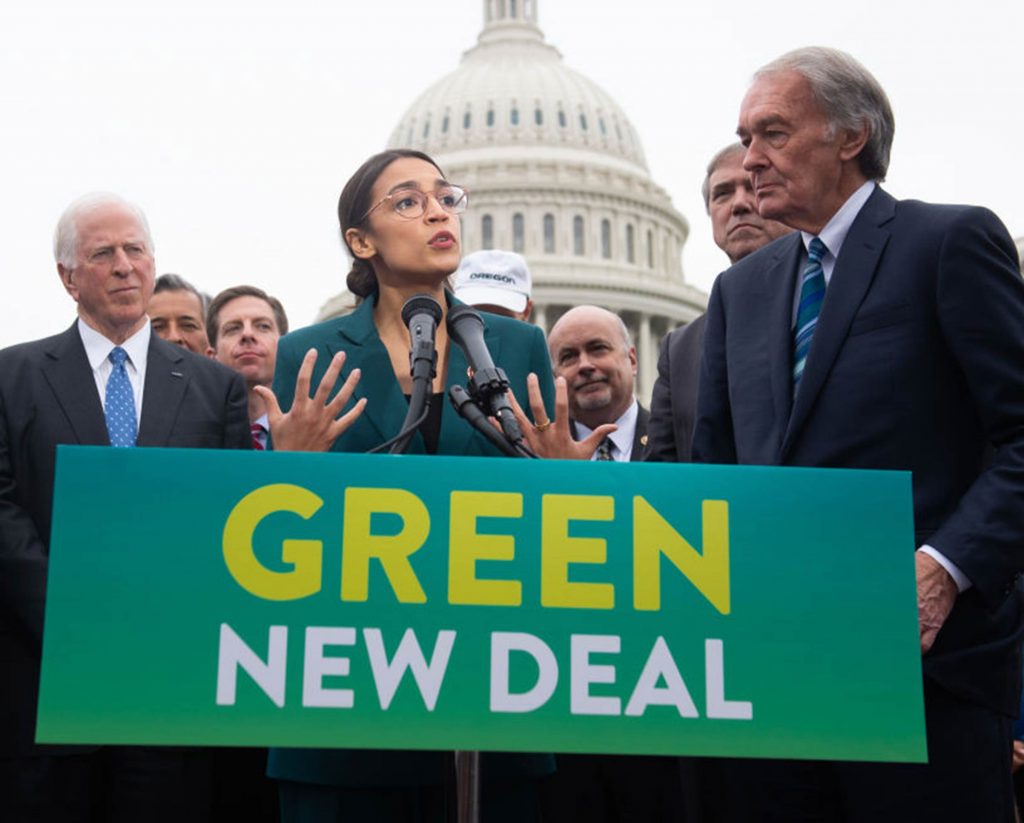On Mar. 26, the Senate voted down the Green New Deal resolution sponsored by
Representative Alexandria Ocasio-Cortez (AOC) and Senator Edward J. Markey. The result
was largely expected by most political forecasts, split mostly along party lines: 57 senators,
53 Republicans and 4 Democrats voted “no,” while 43 Democrats voted “present.”
As AOC’s first sponsored piece of legislation, the resolution called for the implementation of
a set of non-binding goals and visions for the US government. These objectives included
reducing greenhouse gas emissions, eliminating social inequality, and creating high-paying
jobs. The resolution, however, could not have created laws due to its non-binding nature;
instead, it was meant to set forth a long-term direction for the country.
“I’m don’t like the bill,” said Ryan Kim (11), AP World History student. “The intention is
good, however the implementation of it could have been much better. The bill only served to
widen the political rift between the left and the right and probably just made an actual,
implementable solution even further from reach.”
Senate Majority Leader Mitch McConnell had put up the vote in what some Democrats are
calling a “show vote” or a “stunt vote,” meant to mount pressure on moderate Democrats by
forcing them to vote on the issue while also skipping the procedural hearing. In response, the
Democrats voted “present” as opposed to “yes” as a protest to the rushed voting. AOC,
despite having sponsored the bill, claimed that she encouraged Senators to not vote “yes.”
She wrote on Twitter, “McConnell tried to rush the #GreenNewDeal straight to the floor
without a hearing. The real question we should be asking: Why does the Senate GOP refuse
to hold any major hearings on climate change?”
“I think it is pretty sad that the bill was so rushed,” said Christopher Shin (11), Green Club
member. “I think the bill and the debate around the bill would have brought more attention to
climate change. Considering that recent data is pointing to even more significant damage
from climate change than we had previously thought, I think it’s more pertinent than ever to
actively fix our problems.”
The resolution was under heavy contention from the moment of its release, with politically
charged statements from both sides of the aisle. Most Democratic candidates in the 2020
election immediately strongly endorsed the resolution, while Republicans mocked the
resolution referring to the resolution as “socialist” and overly ambitious. Moderate
Democrats, who have been averse to taking strong positions on controversial issues, have
then been put on the spot to take a side and risk alienating their more conservative base.
“Much of the debate around this issue is really just another chance for politicians to pander to
their base,” said James Fischer. “The media and politicians make up false claims about the
bill since their base soaks it all up without really looking at the facts.”
The resolution is only another installment of the Green New Deal movement and ideas
originating from 2007. The bill, named after the movement’s namesake, has been incorrectly
attributed with ideas from the movement, such as removing air travel, cars, as well as other
modern luxuries. This confusion has been amplified by the misinformation spread by the
media and politicians — President Trump echoed these misconceptions writing on Twitter
that the Green New Deal will “permanently eliminate all Planes, Cars, Cows, Oil, Gas & the
Military.”

